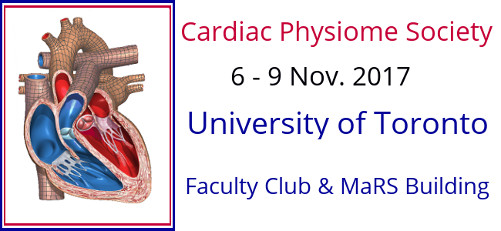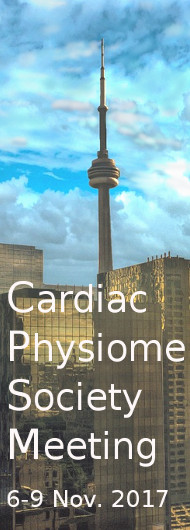

Next Cardiac Physiome Society Workshop: Looking ForwardThe next Cardiac Physiome Society meeting is scheduled in Spring 2019. Please direct questions to Tammo Delhaas at Maastricht Univ. in the Netherlands. Inquiries about the 2017 Workshop can be directed to Jim Bassingthwaighte at University of Washington, in Seattle. Cardiac Physiome Society's 20th Workshop: Metabolism, Mechanics and ExcitationThe Cardiac Physiome Society's annual meeting was held at the University of Toronto, Canada from Nov. 6th to Nov 9th, 2017. Main meeting: The central theme, building on the past emphasis on electrophysiology and mechanics, is on linking these to metabolism. The overt goal is to foster bridging “silos of knowledge” into conciliated structured knowledge linking metabolism, signaling, electrophysiology and mechanics, via mathematical models. Topics include:
A tutorial / technical session (Thursday AM Nov 9th), is on computational methods modeling principles and practice simulation platforms, reproducibility. CiPAThursday 1:00-6:00 PM: CiPA (Comprehensive in-vitro Pro-arrhythmia Assay), an international initiative, launched in 2013 by the US Food and Drug Administration, other drug regulatory agencies, industry and academic collaborators, to develop and validate a new mechanistic, in vitro and in silico paradigm for evaluating the proarrhythmic risk of new drugs. CiPA studies include ion channel effects in cell lines combined with mathematical action potential modelling to predict the effect of multiple ion channel block and associated pro-arrhythmic risk, and to check the integrated effect with stem-cell derived cardiomyocyte measurements. The CiPA project website is http://cipaproject.org/ |